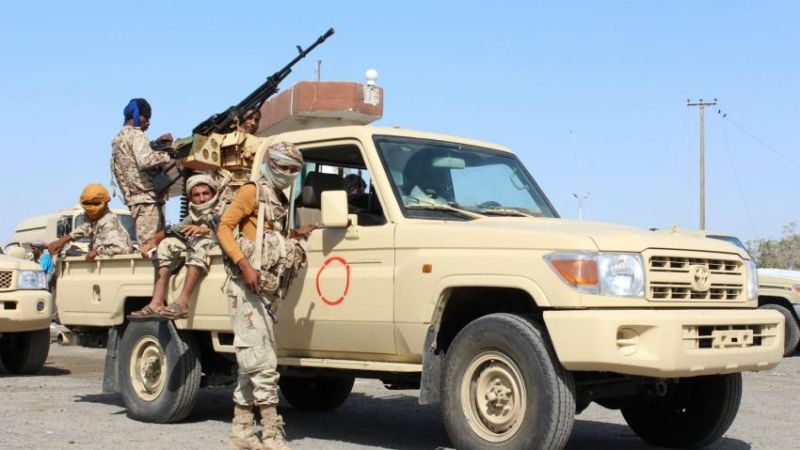
Local Editor
During the beginning of last year, the German Federal Government had announced to stop arms export licenses to countries involved in wars, that is, Saudi Arabia and UAE-led coalition. Pushed by the German Social Democratic Party (SDP), the clauses were altered and a complete export ban for Saudi Arabia was imposed in November 2018, considering the barbarous killing of Saudi dissent Jamal Khashoggi at the orders of Crown Prince Mohammed bin Salman.
However, despite the ban, Germany’s National Security Council, a secret security council consisting of Chancellor Angela Merkel and her chief ministers, has been approving arms delivery to the Saudi-led coalition in the proxy war in Yemen, according to a local news agency Badische Zeitung. The report stated that the authorities have been violating the restrictions that were levied by the agreement between the Arab alliance and SPD, since the beginning of this year.
Data reveals that between January 1 and June 5, a total of 43 exports to the United Arab Emirates (UAE) for 206.1 million euros and 13 exports to Egypt for 801.8 million euros were approved. The breaches came to light through a response from the Ministry of Economic Affairs to a request of the Green MEP Omid Nouripour, German politician. The revert is reportedly available with the German Press Agency.
Apart from Egypt and UAE, two arms deals were allowed with Saudi Arabia as well, regardless of the complete export ban. The Secretary of State in the Ministry of Economic Affairs, Ulrich Nußbaum announced that it included the delivery of “special protected SUVs” for 831,003 euros.
This year, eight countries that are a part of the coalition — Saudi Arabia, UAE, Egypt, Kuwait, Jordan, Bahrain, Sudan and Senegal — were granted a total of 122 arms export licenses worth EUR 1.1 billion.
Left Party’s deputy parliamentary leader, Sevim Dagdelen described the approvals as “simply criminal and a violation of current European law”.
In 2015, the oil-rich Saudi Arabia formed the coalition of the predominant Arab nations to forcefully reinstate the resigned Yemeni regime. From past four years, the situation in the vulnerable country on the Arabian Peninsula has been turning critical each day, triggering the worst humanitarian crisis in the region. The Armed Conflict Location & Event Data Project (ACLED) records over 70,200 total reported fatalities in Yemen, from January 1, 2016 to April 13, 2019.
Initially, the SPD had only prohibited arms deliveries to the countries that participated directly, where already approved transactions were excluded. However, a complete ban for Saudi came in later, considering the deteriorating situations in Yemen and the terrifying murder of Jamal Khashoggi.
In March 2019, the suspension was slightly eased, but only for subcontracting collaborative projects with Allies. A few days later, the export of “technology for semi-trailer production” of a company in Ulm, Kamag, to France was approved.
Reports have highlighted that the export of the “special protected SUVs” mentioned in the letter from Secretary of State Nussbaum, was not known previously.
Like Saudi Arabia, export permits to the UAE also remain uncertain. Leading the alliance with Saudi Arabia in Yemen, the gulf emirates received export licenses worth 206 million euros by the beginning of June, which is as much as in the entire year 2017, that was, 214 million euros.
Last month, Abu Dhabi Crown Prince Sheikh Mohammed bin Said al-Nahjan, also the de facto ruler of the UAE, visited Chancellor Angela Merkel and agreed on the extension of the strategic partnership. However, no mention of the armaments exports came up.
Apart from the Senegal, all the other countries in the coalition were granted export permits. Reports revealed the arms exports data of other states of the Yemen War Alliance— Kuwait: 51 permits worth €70.9 million; Bahrain: six Permits totaling 217 000 euros; Jordan: six permits valuing €3.4 million and Sudan: one permit for 4116 euros.
The continued weapons supply from Germany’s secret security council to members of the war coalition in Yemen highlight how the European nation has played a double game in the picture. Where the nations with arms wealth refuse to pull out their support in Yemen’s growing destruction, the situation continues to get more complicated. Criticizing these nations, the rights groups and global leaders fail to understand the reason behind their negligence towards civilian deaths.
Source: TNS, Edited by Website Team